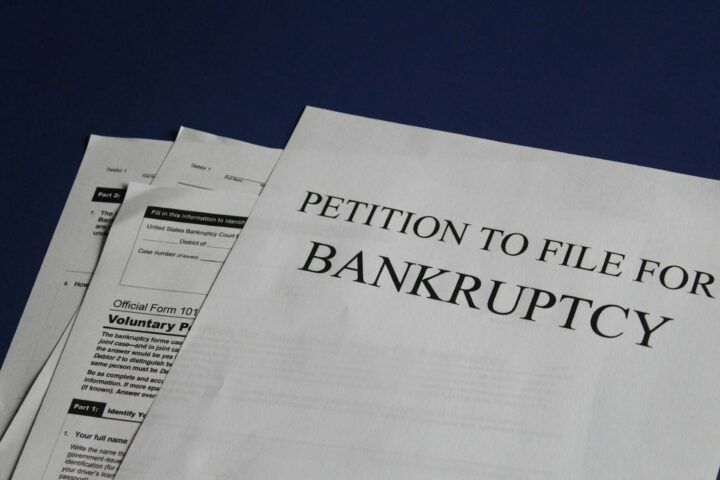Chapter 7 vs Chapter 13 Bankruptcy – What’s Different?
Understanding the differences between Chapter 7 Bankruptcy vs Chapter 13 Bankruptcy can be a complex task, especially due to the intricate legal jargon involved.
Simplifying these concepts will help you grasp how they differ, thus enabling you to make informed decisions if you ever find yourself in a precarious financial situation.

Chapter 7 Bankruptcy
Also known as “liquidation bankruptcy,” Chapter 7 Bankruptcy is a legal course that allows individuals with significant debt to eliminate their unsecured debts after a specific period.
Key Features
- No Repayment: Chapter 7 bankruptcy does not necessitate the repayment of your debt.
- Asset Retention: Most people can retain all their assets, except those not covered by a bankruptcy exemption.
- Debt Discharge: Qualifying debts are entirely discharged, offering the debtor a clean slate.
This form of bankruptcy is typically suitable for individuals who have more debt than they can pay and fall below specific income levels. However, certain debts like tax responsibilities, child support, or alimony cannot be discharged under Chapter 7 bankruptcy.
Chapter 13 Bankruptcy
So, what is Chapter 13 Bankruptcy? It’s often referred to as “wage-earner’s bankruptcy,” enables individuals to reorganize their debts while paying back a portion of what they owe.
Key Features
- Debt Reorganization: It allows for debt restructuring, making it manageable for the debtor.
- Protection from Foreclosures: It can halt debt collection, vehicle repossession, and property foreclosures.
- Repayment Plan: Debt can be reduced and repaid in smaller amounts over a longer period.
- Non-Dischargeable Debts: Non-dischargeable debts can be reorganized but not eliminated.
Under Chapter 13 bankruptcy, you will likely get to keep your property, such as your home. Some debtors claim that “chapter 13 ruined my life“. It’s not pleasant but sets up their finances for a better future.
Bankruptcy Chapter 7 vs 13: Goals and Outcomes
While both Chapter 7 and Chapter 13 offer debt relief options, the approach differs. Your unique financial standing will determine which one you can pursue. Both types can provide filers with a fresh financial start once the debt is eliminated, and bankruptcy is discharged.
Debts: Dischargeable vs Non-Dischargeable
One of the primary objectives of declaring bankruptcy is to get out from under debt that far exceeds your income. Your accumulated debts will fall into two categories:
- Dischargeable Debts: These debts can be eliminated through bankruptcy. Creditors will not be allowed to pursue discharged debts after you complete the bankruptcy process.
- Non-Dischargeable Debts: These debts cannot be eliminated by filing for bankruptcy. They include alimony, divorce settlements, child support payments, certain taxes, and other debts owed to the government, as well as debts accrued because of criminal penalties.
Eligibility for Bankruptcy
The eligibility restrictions for Chapter 7 and Chapter 13 bankruptcy also differ.
- Chapter 7: Requires your current monthly income to be less than or equal to your state’s median income level. If not, you must pass a means test.
- Chapter 13: You must have a regular income, unsecured debts under $419,275, and no more than $1,257,850 of secured debt (as of 2021).
How Bankruptcy Attorneys Can Help
Navigating the process of filing for Chapter 7 or Chapter 13 can be overwhelming. Here’s how a bankruptcy attorney can assist:
- Clarify Bankruptcy Laws: They can explain state and federal laws for the type of bankruptcy you want to file.
- Review Your Financial Situation: They can review your income and debts to determine which filing option works for your situation.
- Prepare Your Bankruptcy Petition: They can prepare your bankruptcy petition and compile essential financial documents showing your income, assets, and creditors owed.
- File Your Paperwork: They handle filing your petition and all paperwork with the court on time.
- Creditor Meetings: They attend creditor meetings with you and keep you informed with prompt updates.
Knowing the differences between bankruptcy Chapter 7 vs 13 can help you make an informed decision about which option is best for you. Remember, it’s always advisable to seek legal counsel when dealing with complex financial matters such as bankruptcy.
A skilled attorney can guide you through the process, helping you to avoid costly mistakes and secure the best possible outcome for your financial future.


